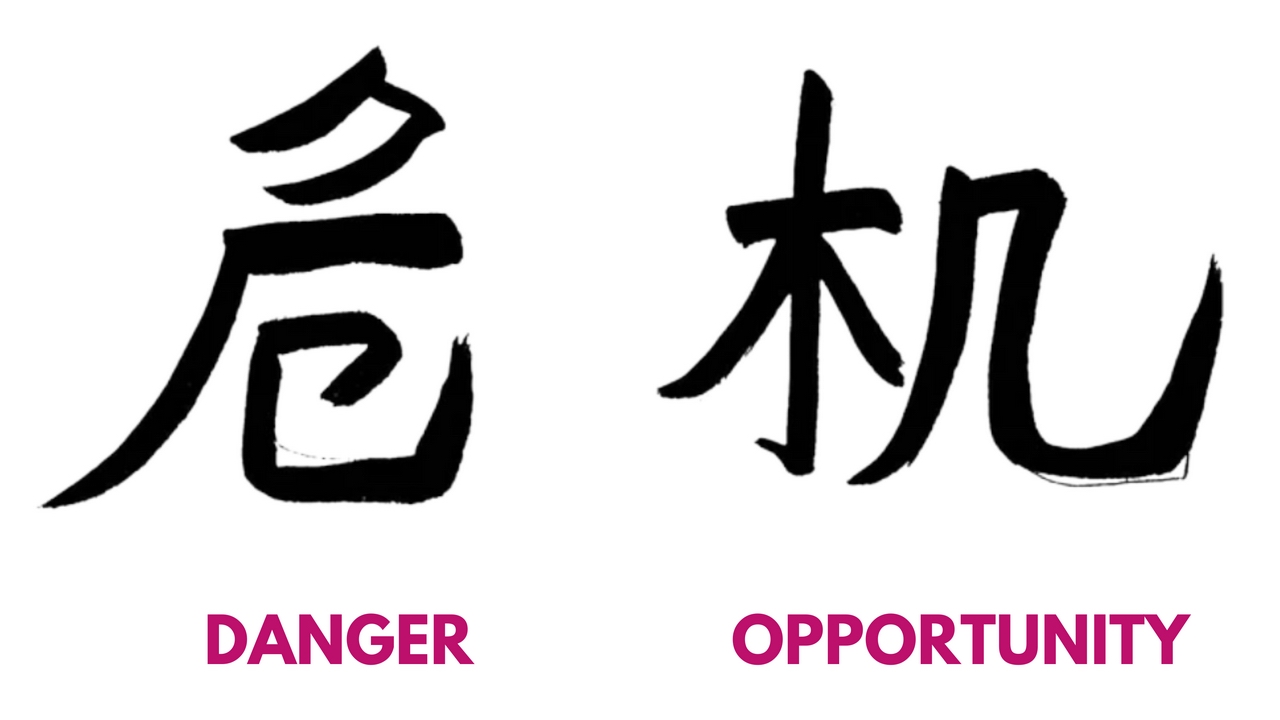
No one ever wants a crisis to happen. As a Legal or Compliance Officer, it is important to be ready and to prepare before it does. As John F. Kennedy said, “When written in Chinese, the word “crisis” is composed of two characters. One represents danger and the other represents opportunity.”
Depending on the crisis, there are dangers or certain high-risk situations that you and the company must overcome or resolve. You can never be fully prepared for a crisis, but you can form an effective strategy to weather the storm. You have an opportunity to show your agile leadership and plan ahead before a certain crisis happens.
Here are some useful tips to create a plan or strategy for a crisis that may arise in the future:
1. Ensure that you have a harmonized approach to Legal and Compliance risk and opportunity assessment and management in your company. A well-designed compliance program is based on the understanding and management of the company’s risks and opportunities. E.g. in Asia Pacific, one of the high-risk areas is a company’s interactions with external third parties. Implement a third party risk management approach to mitigate the risks and prepare for possible scenarios where a potential crisis may arise when interacting with an external third party.
2. Create a crisis management task force. Form the team depending on the crisis at hand. Your General Managers (GMs) and/or leadership teams in your company can have relevant training to know the process/procedure of what to do if a crisis occurs. E.g. develop a contingency & response plan; provide media training for certain key employees to properly communicate with the public if questions arise; and work with internal communications functions to effectively communicate and update internal or external stakeholders.
“It’s not about the number of hours you practice, it’s about the number of hours your mind is present during the practice.” – Kobe Bryant
3. Training is a must. You, as a Legal or Compliance Officer, are needed by the business when a crisis arises. Provide the appropriate training and coordinate or collaborate with other functions to prepare, prepare and prepare. E.g. in the situation of a dawn raid, all relevant internal stakeholders should have dawn raid training. Work with your internal legal team or external counsel to enhance your local internal dawn raid policy.
4. Simple documentation is not simple. Develop and write down easy to understand processes and procedures to have in place so that key individuals know what is required of them during a particular crisis. E.g. create flow charts, visualized processes, etc.
5. Practice what you preach. It is suggested to have mock exercises or drills for a certain crisis that you think may potentially arise. We all do not want a crisis to happen, but it is vital that all employees within the company know what to do if indeed a crisis does occur. It may take a couple of mock sessions to get certain employees to learn and understand the processes or procedures in place. Capture the learnings and insights from each mock session conducted so that you can keep on improving. Assess how frequent these mock exercises or drills need to be done, whether it be yearly or every couple of years. Be mindful that certain employees move or transfer to new roles. Having a proper onboarding for new employees is also crucial so that they are aware of what responsibilities they need to priorities and be ready for.
6. Have a learning mindset. There are so many ways to improve your skills and capabilities as a Legal or Compliance Officer. The more you enhance your skills and capabilities, the more prepared you are when a crisis occurs. This is your opportunity to shine and show your value in the company. As a parent, I took first aid classes to learn how to help my family and my son in case a certain emergency happens. There was an instance when my son was watching cartoons and he tripped and bumped his head on the table while eating his dinner. He started crying and could not breathe. Food was stuck in his throat. I am thankful that I learned how to conduct first aid for my choking child. Find the areas where you need to improve on certain skills and capabilities that are needed when a crisis occurs.
7. Social media is an area to be ready for. Information on social media can spread like wildfire once posted on a particular social media platform. Ensure that a social media policy is in place to extinguish a fire if a crisis happens.
8. Hindsight is 20/20, as they say. Learn and reflect from past experiences. Engage your internal network and seek advice or guidance from relevant colleagues. It is better to be over prepared than under prepared.
“The ultimate measure of a man is not where he stands in the moments of comfort, but where he stands at times of challenge and controversy.” – Martin Luther King, Jr.
Do you have a robust, yet flexible crisis plan in place? Is your team prepared for an unforeseen crisis? Which areas do you need to improve on? You have an opportunity to show your leadership and improve your company’s approach to crisis management when there is no crisis yet.
Disclaimer: The views and opinions expressed here are only those of the author and do not reflect that of Roche.
By John Alexander A. Gregorio, Roche Singapore

Atty. John Alexander A. Gregorio, Juris Doctor (JD) A Global Compliance Leader, primarily responsible for the Asia Pacific Region for Roche Singapore Pte. Ltd, Pharmaceutical Division. Over 10 years of experience in the Pharmaceutical Industry. Member of the Roche Global Healthcare Compliance Leadership Team in Basel, Switzerland. Lawyer. Guest Lecturer. Family man. Golfer. Cyclist. Children’s book author. |
* This article was first published in April 2022 issue of the IHC Magazine. You can read/download the magazine here.














